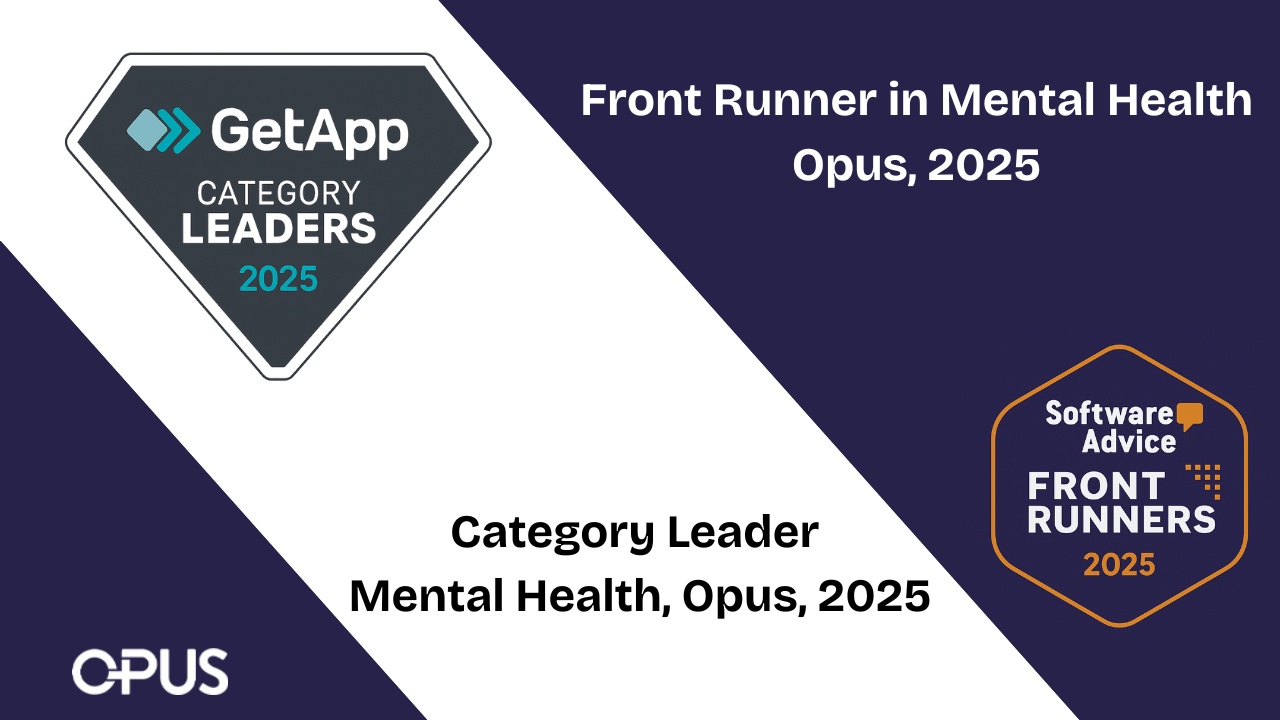Addressing the Lack of Continuity of Care in Mental Health Services
Change Agent 1: What is the biggest issue clinicians face with treating people with mental health diseases? One of the biggest issues clinicians face is around treating people with a high quality of care who have diseases, that impact their behaviors. In the medical field as a whole, there has always been describing mental health like “this is a psych case,” whether it’s in an emergency room or at a consult liaison service. That’s damaging to the patients.
First of all, it serves to reiterate to our patients that mental illnesses are things that they choose and is some sort of weakness of their will. Rather than “this is a patient who happens to have a disease rooted in their brain” that impacts the things that our brains do for us, things that our neocortex and frontal lobes do for us, like make decisions, inhibit impulses, and motivate us to get up in the morning and be able to go to work. I don’t particularly like the terms “mental illness” or “behavioral health” because so much of that language is rooted in an old and false idea that patients who have these illnesses are choosing to be this way. Just because you don’t see it doesn’t mean it doesn't exist.
With addiction, I like to use American Society of Addiction Medicine (ASAM) definition of addiction, which is different from DSM-ology [Diagnostic and Statistical Manual of Mental Disorders], where we hear the term “ substance use disorders.”
The problem with using that term is that it makes laypeople and medical professionals alike think that the disorder is about the substance, but the substance is just a symptom of the disorder. The disorder itself lies in the brain and the reward circuitry and all that’s connected to the reward circuitry, and it plays out with a person pathologically pursuing reward or relief through a substance or another behavior.
The language that we use perpetuates the stigma that is deeply entrenched both within the medical profession and also laypeople.
Change Agent 2: What terms should we be using?
Change Agent 3: I like “brain diseases.” We use specific words for Parkinson’s disease or multiple sclerosis — we consider those neurologic diseases, because they’re related to the brain and the neurons in the brain. This is much the same, just different parts of the brain. Some of the symptoms are motor, but many of the symptoms are not motor symptoms, they’re behavioral symptoms. We don’t say that people with congestive heart failure have a coughing disorder or an edema disorder. Those are symptoms of underlying pathophysiology that is in that person’s heart.
Change Agent 4: Well said. There are also — as we try to understand the landscape of, as you call them, brain diseases — a myriad of different providers who treat this spectrum of disorders and disease in different types of care settings. What are these care settings and who are the types of providers?
Change Agent 5: I’ll start with the care settings themselves, and those range from simple outpatient care, therapy, individual therapy sessions or outpatient group therapy sessions that people with medical licenses do. Psychiatrists do these sessions, but the majority of people who do these types of sessions have no medical training, and those are therapists, licensed clinical social workers, licensed professional counselors, addictions counselors, and so on — and then all the way up to inpatient psychiatry or inpatient psychiatric units, which are locked and involuntary. If necessary, where there’s always a psychiatrist involved, nurse practitioners, and then usually social work or case management to get them back out to the outpatient side. The transition to outpatient from the highest level of care, inpatient, could include residential, partial hospitalization programs, which are day treatment programs, and then intensive outpatient programs that typically meet 3 to 5 times a week, anywhere from 3 to 4 hours per session.
It’s a lot of different companies that are not organized or not working together to support the patient’s best interests. They’re more often working with themselves to support, in many cases, their own bottom line, and that adversely affects the patient.
Change Agent 6: I would add that, from an industry standpoint, getting to the types of providers, it’s a very, very fragmented industry with over 14,000 different providers. There are a couple of large hospital systems, conglomerates that are, for all intents and purposes, private equity firms that have done a lot of acquisition in the last couple of years, but it’s fragmented with lots of providers, and frankly it’s also very, very disorganized.
Change Agent 7: How is it disorganized?
Change Agent 8: For instance, when somebody is discharged, as Kim said, from say an inpatient level of care down to something like what we do, which would be intensive outpatient, it’s often challenging getting medical records sent to us, coordinating care, which obviously affects everything from medication to certain types of treatment that maybe the patient responded positively or negatively to at the previous level of care. It’s a lot of different companies that are not organized or not working together to support the patient’s best interests. They’re more often working with themselves to support, in many cases, their own bottom line, and that adversely affects the patient.
Change Agent 9: Would you say that this is the top issue the industry needs to address in order to improve care delivery and outcomes for patients, or are there other ones that top your list?
Change Agent 10: That’s one of the biggest ones, the lack of continuity in care. This is an example of somebody we’ve treated recently, where all these issues collide: A person with five or six medical illnesses, physical health illnesses related to a binge eating disorder, who needed psychiatric treatment in order to qualify for bariatric surgery. It took a lot of footwork and effort and time, frankly, to be in touch with the bariatric surgeons, to be in touch with the endocrinologists, to make sure that he was a good candidate for the surgery and that there would be follow-up care available for him on the psychiatry front after the surgery.
We both have to be looking at the global picture, population-based health, and find a way to do what also enables us to continue caring for individuals, because this individual had a different set of needs than someone else.
Because of the way the system is, we’re all focused on the patient in front of us for the time that patient is in front of us, and as soon as that patient leaves, there’s another patient in front of us. So we don’t have time built into the system, necessarily, to make sure that the previous patient gets to where they need to be for that own individual’s needs beyond our scope of service.
So this person left, successfully completed the surgery, no complications, and then abruptly stopped all his meds, got severely depressed, and the police had to go to his house and commit him to an inpatient psych unit. And even that inpatient psych unit within our own field of “mental health,” shared no records with us. They knew that he’d been in our program prior to the surgery and the plan was for him to come back after the surgery, and it took another couple of days to track down the inpatient psychiatry records as we got this person back into a PHP [partial hospitalization program] level of care here.
One of the medications that this person was on for low testosterone was testosterone injections. We know that when people abruptly stop testosterone injections, they can have all sorts of medical and psychiatric complications, one of which is severe depression and anhedonia, which this person experienced. He had an overdose that could have killed him if it wasn’t for a friend requesting a wellness check by the police.
These are the kinds of questions that nicely highlight the disorganization, the lack of anybody looking at the whole picture, the fragmentation that is part of health care today. We both have to be looking at the global picture, population-based health, and find a way to do that that also enables us to continue caring for individuals, because this individual had a different set of needs than a person with no psychiatric illness going into a bariatric surgery.
The biggest need in our industry is support and shifting the needle from fee-for-service to value, because once we’re focused on value and quality, a lot of these problems will go away.
Change Agent 11: Connected to that closely, in my opinion, the biggest need in our industry is support and shifting the needle from fee-for-service to value, because once we’re focused on value and quality, a lot of these problems that Dr. Dennis described will go away. There are a lot of reasons why the industry is not engaging at the moment in any sort of value creation or measurements of quality indicators. We don’t happen to agree with many of those reasons. We’re hopeful that the field will move in the direction of measuring quality, because absolutely it’s in our patients’ best interests to do so. But for now, we desperately need to shift at least just a little bit away from fee-for-service and toward some sort of system that measures, rewards for, and holds people like us accountable for the quality of care that we’re providing.
Change Agent 12: There are certainly places and areas of medicine that are moving to value-based care, but not areas that include any of the chronic diseases that cost our country the most medical care spend. It’s things like knee replacements, single episodes of care that are one specialty, that are easy to measure. This example that I shared would require all the physicians involved to be interested in keeping this guy out of the hospital both medically and psychiatrically post-op.
Change Agent 13: And if we were all on the same team because we were all incentivized and ultimately rewarded for being on the same team and delivering the most favorable outcome for this patient, then we would all be much more inclined to work together, because if we didn’t work together our outcome would be poor, and we would get paid less, whereas if we work together, this patient does better, and we all are rewarded for increasing value for all constituents. We’re on the same page, I just think it’s a long way off, but hopefully will happen sooner than later.
Change Agent 14: I fully support the comments around the importance of shared incentive. I also fully support the push for better measurements. We all know that we cannot improve what we cannot measure. What types of outcomes, both clinical and financial, should we be measuring in this space, and are these metrics any different than the outcomes we strive to measure and improve in other disciplines like primary care, cardiology, and surgery?
We want to make sure we’re reducing time in treatment, not to decrease the cost of one single episode of care only to get that person 1 month from now, or 2 months from now, back in a much higher level of care that’s much more costly because they left prematurely due to some artificial parameter from a financial domain.
Change Agent 15: Some of the outcomes are similar. Functional outcomes, how well is the person functioning in their life? Are they able to get up and go to work? Are they able to show up to social engagements? Those sorts of things are measured by health-related quality of life, for example, and some of those are the measures that we use as well.
There are disease-specific outcomes as well. With patients who have addiction we can use number of sober days or we can use the ASI, the Addiction Severity Index. For people with eating disorders, there’s Eating Disorder Index 3 and the Eating Disorder Examination Questionnaire. The tools are out there. It’s just a matter of coming to some consensus around which tools we’re using so that we can make meaningful comparisons from site to site or program to program to begin to be able to determine which programs are most effective, which treatment modalities are most effective.
Financial measures have been leading the charge in mental health. With private insurance companies, the “quality measures” are all short-term financial measures, reducing days in the hospital. This is something we want to do, but we want to make sure we’re reducing time in treatment, not to decrease the cost of one single episode of care only to get that person 1 month from now, or 2 months from now, back in a much higher level of care that’s much more costly because they left prematurely due to some artificial parameter from a financial domain.
Change Agent 16: This is a big passion of mine. I in some cases sit on the front end of phone calls that come in from often desperate, sick patients, family members, who have absolutely no idea who they’re calling, why they’re calling them, what we do, what we don’t do, what the guys across the street do or don’t do well. Unfortunately, the field is entrenched in not sharing outcomes because I feel like in many cases incumbents are, whether intentionally or unintentionally, taking advantage of the system as it exists today, again, incentivized or fueled by the fee-for-service model.
The sooner it changes the better, because patients, particularly on the front end, are going to places they shouldn’t be going to, and no one will tell them.
I’ll sit on the phone often with patients who are interested in learning more about what we do, and half the time it’s sharing with them what we don’t do — we know that because we collect a lot of outcomes, so we know where we don’t do as well. Once we get to a point where, like Dr. Dennis said, we can all agree on what standardized measurements make sense in this field, and then do some risk-adjusting, then we’re going to have to be forced to share and be transparent with them. It’s such a subjective field with this patient population that many of us are, again, taking advantage of and capitalizing on the lack of information and the lack of data.
It’s really a shame. The sooner it changes the better, because patients, particularly on the front end, are going to places they shouldn’t be going to, and no one will tell them. It’s really sad.






